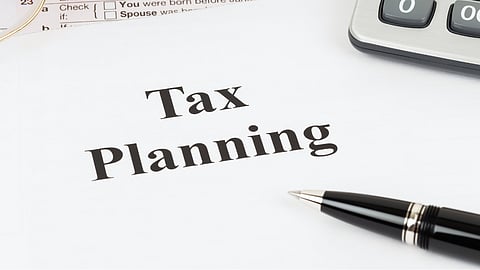The risks of semi-nomadic lifestyles and cessation of tax residence
*This content is brought to you by Brenthurst Wealth
By Kim Doolan *
Is the cessation of tax residence process overdone, overused and thus becoming an artificial concept? Is it really as simple as finding employment abroad, obtaining a certificate of tax residency from this other jurisdiction, submitting it to SARS and then your South African tax obligations are now a thing of the past?
As globalization increases, more South Africans earn income from or hold assets offshore. A growing number of South Africans are also adopting a semi-nomadic lifestyle, spending six months abroad and six months in South Africa. While this arrangement may seem like an ideal way to balance lifestyle, family, and financial interests, it carries significant tax and asset risks. Many individuals assume that spending half the year outside South Africa is sufficient to break tax residency, but this is not necessarily the case.
South African tax residency is determined by two key tests: the Ordinary Residence Test and the Physical Presence Test. If SARS believes that an individual's primary home, business connections, and social ties are still centred in South Africa, they could still be considered a tax resident—even after spending significant time abroad. By spending six months annually in South Africa, individuals may unintentionally meet the criteria of the Physical Presence Test. According to this test, an individual qualifies as a tax resident if they meet all of the following conditions:
- Spend more than 91 days in South Africa in the current tax year.
- Spend more than 91 days in each of the preceding five tax years.
- Accumulate more than 915 days in total over the past five years
Non-South African tax residents are only liable to pay tax in South Africa on income derived from a South African source. In contrast, South African tax residents are subject to taxation on their worldwide income, which includes income earned from foreign employment, investments, and rental properties. Even if a South African tax resident earns foreign income while working abroad, SARS still requires disclosure of that income. The foreign employment income exemption allows for a tax-free amount of up to R1.25 million, provided the individual spends more than 183 days outside South Africa in a 12-month period (with at least 60 of those days being consecutive).
To revisit the original questions, the answers in my view are yes, cessation of tax residence is fast becoming an artificial concept and no, it is not that simple. SARS is becoming more adept at identifying these cases and without careful planning, individuals may find themselves at risk of being classified as South African tax residents. This could lead to years of incorrect submissions, where only South African source income was declared, and could end up a costly exercise.
Without proper structuring and compliance, individuals could face the risk of worldwide taxation, double taxation, capital gains liabilities, estate duty concerns, and even SARS understatement penalties for incorrect disclosures. Where advice was obtained previously, given how quickly circumstances change, it is important to regularly review the advice and structures in place.
* Kim Doolan is an internal tax practitioner at Brenthurst Wealth. kim@brenthurstwealth.co.za
Read also:

